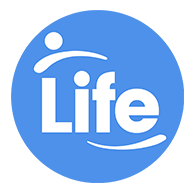The Influence of Clinical Trial Data and Guideline Compliance on Gastritis Treatment Choices in Germany
The Germany Gastritis Treatment Market is heavily driven by rigorous clinical trial Data and the strict adherence to national and European clinical practice guidelines. Treatment decisions, particularly for H. pylori eradication regimens, are not based on anecdotal evidence but on high-quality Data showing eradication success rates, recurrence prevention, and safety profiles. The German S3 guideline, which governs the diagnosis and treatment of gastroduodenal diseases, acts as the primary regulatory and clinical compass, ensuring that only treatments backed by robust, peer-reviewed Data are widely adopted and reimbursed.
This reliance on objective Data creates a high barrier to entry for novel therapies, which must undergo extensive local validation to prove their superiority or non-inferiority to established standards like PPI-based triple therapy. Furthermore, the increasing problem of antibiotic resistance is forcing the collection of local epidemiological Data on resistance patterns, which is then used by clinicians to customize first-line treatment protocols, moving away from universal triple therapy in high-resistance areas. The meticulous collection and utilization of real-world Data on treatment efficacy and patient compliance are essential for pharmaceutical companies seeking to maintain or expand their market position within this evidence-based German healthcare ecosystem. Understanding how this clinical Data is collected and applied is fundamental, as explored in the Germany Gastritis Treatment Market Data review.
FAQs
Q: What is the primary function of the German S3 guideline in relation to the gastritis treatment market? A: The S3 guideline serves as the official clinical and regulatory compass, dictating which diagnostic procedures and drug regimens are considered the standard of care, thereby controlling market adoption and reimbursement.
Q: Why is the collection of localized epidemiological data on antibiotic resistance critical for the market? A: Local data on resistance, especially to clarithromycin, is critical because it informs German clinicians on when to abandon standard triple therapy in favor of more effective, but complex, quadruple or sequential regimens to ensure high H. pylori eradication success.
- Art
- Education et Formation
- Crafts
- Sciences et Technologies
- Economie
- Politique
- Actualité
- Littérature
- Divertissement
- Histoire
- Health
- Actualité
- Shopping & Commerce
- Music
- Agriculture & élevage
- Voyage et Evènementiel
- Beauté & esthétique
- Religion
- Festival
- Sports
- Fête
- Autres



